How to Keep Your Hunting Dog in Shape During the Off-Season
As a dedicated hunter, you understand the importance of keeping your hunting dog in top shape throughout the year. The off-season is the perfect time to focus on conditioning and maintaining your dog’s health and well-being. In this comprehensive guide, we will explore various strategies and techniques to keep your hunting dog in shape during the off-season. From exercise and training regimens to proper nutrition and rest, we will cover all aspects of keeping your hunting dog in peak condition. So let’s dive in and ensure that your loyal hunting partner is always ready for the next hunting season!
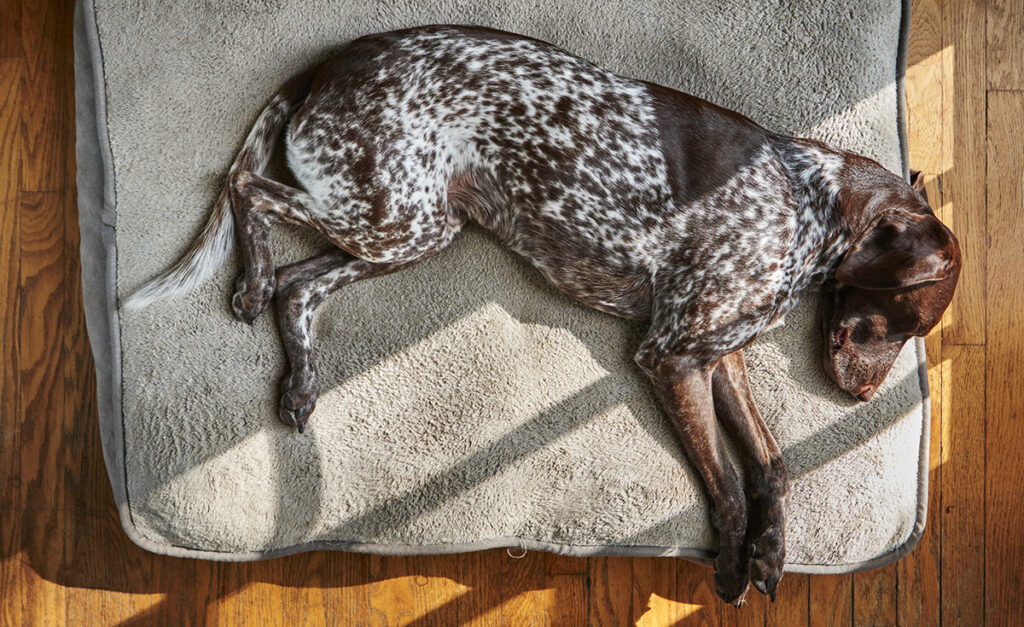
The Importance of Off-Season Conditioning
Off-season training and conditioning for your hunting dog are crucial for several reasons. While your dog may have natural hunting instincts, off-season training helps develop obedience skills and enhances their ability to respond quickly and accurately to your commands. Consistent training throughout the year also improves your dog’s stamina, allowing them to endure long hunts without fatigue. Additionally, off-season conditioning minimizes the risk of injuries by increasing your dog’s confidence, agility, and coordination. Lastly, optimal performance in the field depends on a healthy body and mind, and year-round training helps maintain your dog’s physical fitness and mental sharpness.
Exercise for Conditioning
Regular exercise is a fundamental aspect of keeping your hunting dog in shape during the off-season. Engaging your dog in various physical activities helps build muscle strength, cardiovascular endurance, and overall fitness. Here are some exercise options to consider:
Long Walks and Runs
Taking your dog on daily walks or runs is an excellent way to provide them with regular exercise. Aim for at least two 30-minute walks each day or one hour-long walk. Vary the routes and terrains to stimulate your dog’s senses and challenge their muscles.
Swimming
Swimming is a low-impact activity that provides a full-body workout for your hunting dog. It helps improve cardiovascular health, muscle strength, and flexibility. If you have access to safe and clean bodies of water, consider incorporating swimming sessions into your dog’s exercise routine.
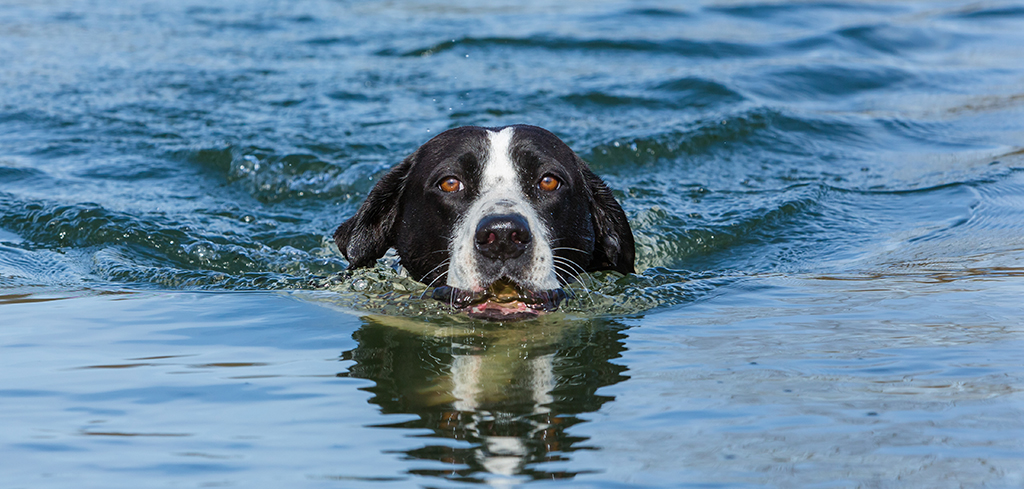
Interactive Games
Engaging in fetch, frisbee, or other interactive games with your dog not only provides physical exercise but also stimulates their mind. These games help maintain their agility, coordination, and mental sharpness. Be sure to choose games that are suitable for your dog’s breed and physical capabilities.
Mental Stimulation
Mental stimulation is as important as physical exercise for keeping your hunting dog in shape. Training sessions, puzzle toys, and interactive activities challenge your dog’s brain and keep them mentally sharp. Regular training sessions also reinforce obedience skills and strengthen the bond between you and your dog.
Training Regimens
In addition to exercise, maintaining a consistent hunting dog training regimen is essential for keeping your hunting dog in top shape during the off-season. Training sessions not only reinforce obedience but also provide mental stimulation and strengthen the bond between you and your dog. Here are some training tips to consider:
Obedience Training
Obedience training is the foundation of a well-behaved hunting dog. Use the off-season to reinforce basic obedience commands such as sit, stay, come, and heel. Consistency and positive reinforcement are key to successful obedience training. Reward your dog with treats, praise, and affection for correctly following commands.
Scent Training
Scent training is crucial for hunting dogs as it helps develop their ability to locate and flush out game. It’s good to use scented training dummies or hides to simulate real hunting scenarios. Gradually increase the difficulty by hiding the dummies in different locations and terrains. This training not only improves your dog’s hunting skills but also provides mental stimulation.
For a quick scent work session, you can set up cones in the backyard or house and hide high-value treats inside.
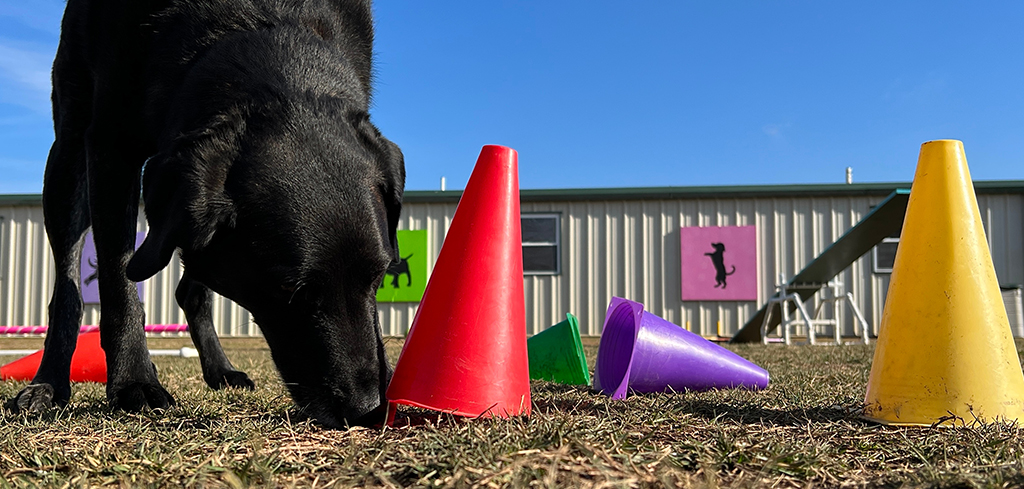
Retrieval Training
If your hunting dog is a retriever breed, retrieval training is vital for honing their retrieving skills. Practice retrieving objects such as dummies or decoys, gradually increasing the distance and difficulty. Use positive reinforcement and reward your dog for successful retrieves. Retrieval training improves your dog’s focus, coordination, and overall hunting abilities.
Field Training
Field training is essential for hunting dogs, especially for pointing and flushing breeds. Set up mock hunting scenarios in fields or wooded areas to simulate real hunting experiences. Practice commands specific to hunting, such as “point,” “flush,” and “retrieve.” Incorporate different terrains, cover types, and distractions to challenge your dog’s skills.
Nutritional Requirements
Proper nutrition plays a vital role in keeping your hunting dog in optimal shape. A well-balanced diet supports their overall health, energy levels, and physical performance. Consult with your veterinarian to determine the best diet plan for your hunting dog, considering factors such as breed, age, activity level, and any specific dietary needs. Here are some general guidelines to follow:
High-Quality Food
Choose high-quality dog food that is specifically formulated for active dogs or hunting breeds. Look for food that contains high levels of protein, essential fatty acids, and vitamins and minerals like our High Energy & Energy Plus recipes. Quality nutrition is essential for maintaining your dog’s muscle mass, joint health, and overall well-being.
Adequate Hydration
Ensure that your hunting dog has access to clean and fresh water at all times. Hydration is crucial for their overall health, especially during physical activities and hot weather. Carry a portable water bowl and offer your dog water breaks during exercise and training sessions.
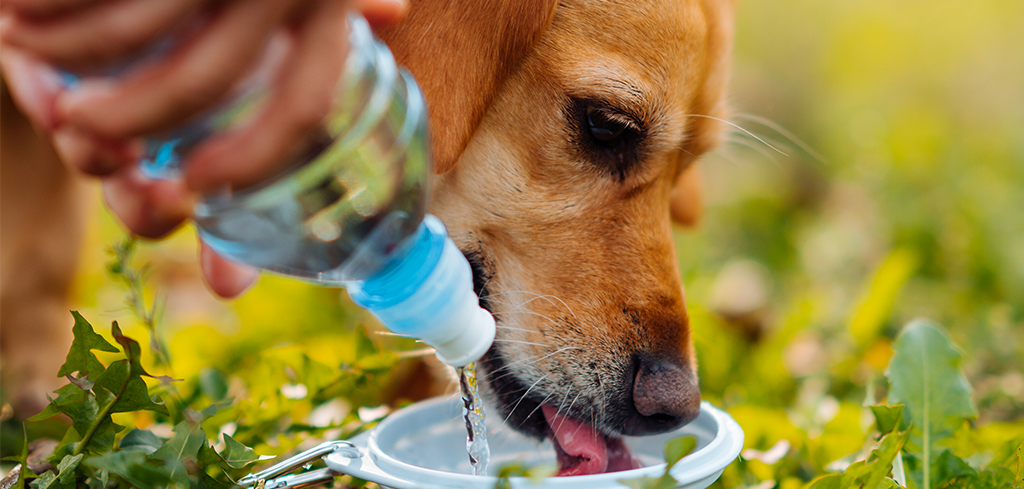
Supplements
Consider adding supplements to your hunting dog’s diet to support their joint health, immune system, and overall performance. Omega-3 fatty acids, glucosamine, and chondroitin are commonly recommended supplements for hunting dogs. However, always consult with your veterinarian before introducing any new supplements.
Portion Control
Maintain a healthy weight for your hunting dog by monitoring their food intake and adjusting portion sizes as needed. Overfeeding can lead to weight gain and potential health issues, while underfeeding can result in inadequate energy levels. Follow the feeding guidelines provided by the dog food manufacturer and consult with your veterinarian for specific recommendations.
Rest and Recovery
Rest and recovery are crucial for your hunting dog’s overall well-being and physical performance. Just like humans, dogs need sufficient rest to recharge their bodies and prevent overexertion. Here are some tips for ensuring proper rest and recovery for your hunting dog:
Comfortable Sleeping Area
Provide your dog with a comfortable and quiet sleeping area where they can rest undisturbed. Invest in a quality dog bed or cushion that supports their joints and provides adequate insulation. Make sure the sleeping area is clean, well-ventilated, and free from any potential hazards.
Regular Breaks
During exercise or training sessions, take regular breaks to allow your dog to rest and recover. Avoid pushing them beyond their physical limits, as this can lead to fatigue and potential injuries. Observe your dog for signs of fatigue, such as excessive panting or slowing down, and adjust the intensity and duration of activities accordingly.
Veterinarian Check-ups
Regular visits to the veterinarian are essential for monitoring your hunting dog’s overall health and addressing any potential issues. Schedule routine check-ups to ensure that your dog is up to date on vaccinations, parasite prevention, and general wellness exams. Your veterinarian can also provide guidance on specific rest and recovery practices based on your dog’s individual needs.
Additional Tips for Keeping Your Hunting Dog in Shape
In addition to exercise, training, nutrition, and rest, here are some additional tips to help you keep your hunting dog in top shape during the off-season:
Socialization
Expose your hunting dog to different environments, people, and animals to promote socialization. This helps reduce anxiety and improves their overall behavior and adaptability. Take your dog to dog parks, training classes, or hunting dog events to provide opportunities for social interaction.
Grooming
Regular grooming is essential for your hunting dog’s hygiene and overall well-being. Brush their coat regularly to remove loose hair and prevent matting. Check their ears for any signs of infection and clean them as needed. Trim their nails to a proper length to avoid discomfort and potential injury.
Safety Precautions
When engaging in outdoor activities with your hunting dog, always prioritize their safety. Ensure that they are wearing appropriate identification tags and are up to date on vaccinations. Use protective gear such as reflective vests or booties when necessary. Be mindful of weather conditions and adjust activities accordingly to prevent overheating or exposure to extreme cold.
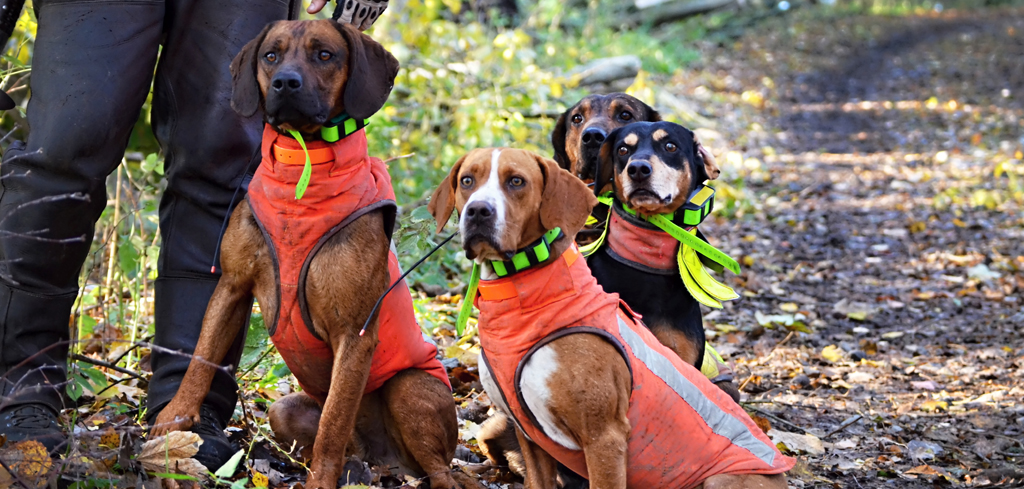
Conclusion
Keeping your hunting dog in shape during the off-season is essential for their overall health, performance, and longevity. By incorporating regular exercise, training regimens, proper nutrition, and rest and recovery practices, you can ensure that your hunting dog remains in peak condition. Remember to consult with your veterinarian for specific guidance tailored to your dog’s individual needs. With consistent care and attention, your hunting dog will be ready to accompany you on many successful hunts for years to come. So, start implementing these strategies today and enjoy the benefits of a well-conditioned and happy hunting partner!

